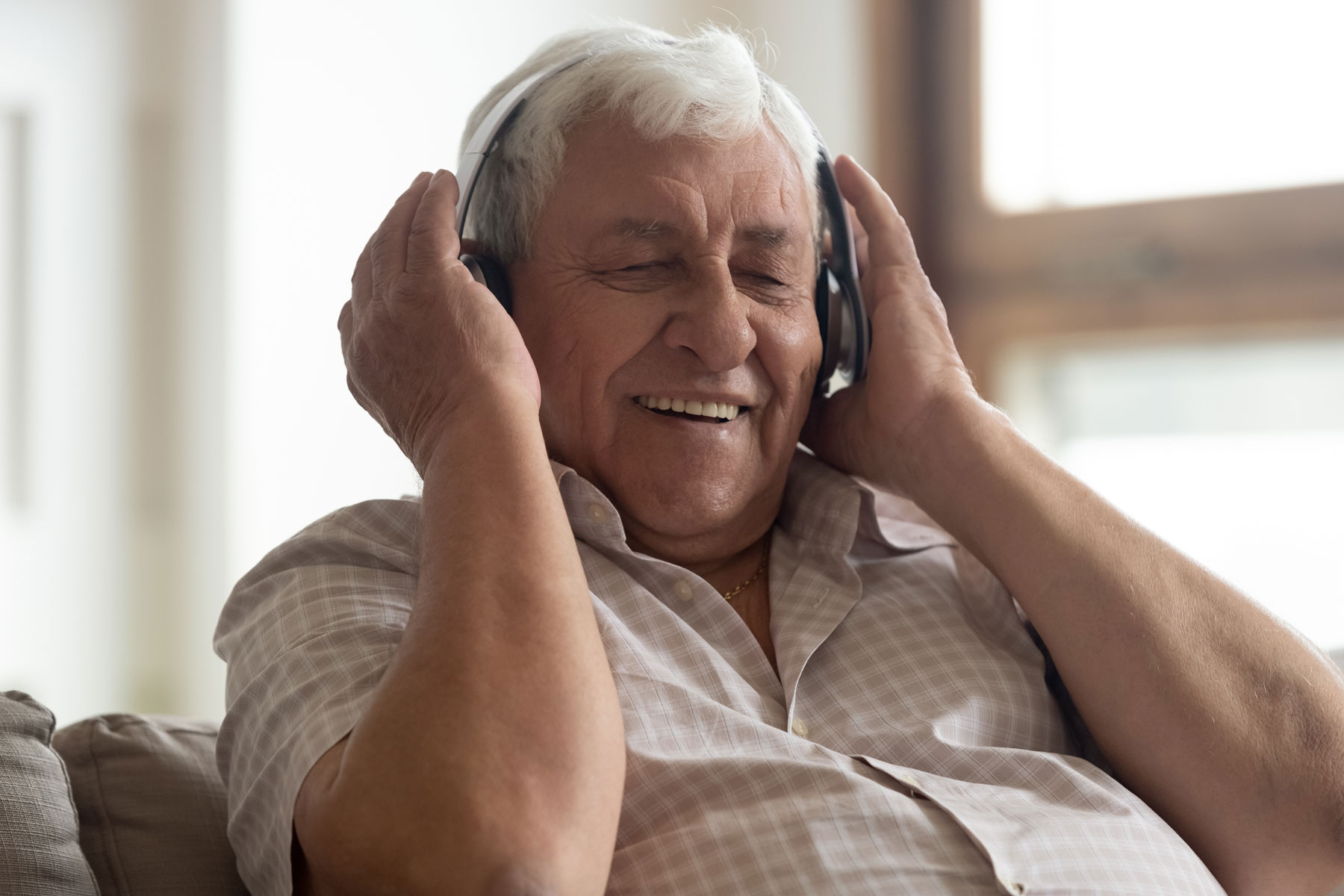Music and Memory: How We Use Music Therapy to Benefit Memory Care Residents

Music can connect with emotions. It can make seniors want to get up and dance. And it can even support mental function. Because of this, music and memory care go together. Today, many memory care providers use music therapy to keep seniors engaged.
At Monticello West, we use music every day. From music during daily activities to a song special for one resident, the use of music offers many benefits, including improved memory. No matter the stage of memory disorder, music still connects with each resident in a special way.
Types of music we use in memory care
The type of music in memory care matters. Most people will feel a sense of calm with slower music. Or they may move or tap their feet to a certain beat. We use different music for various situations. For seniors, often songs from their teenage or young adult years resonate best. For that reason, our team changes up the music throughout the day.
“I like to have big band in the morning during breakfast,” says Lisa Guld, Memory Care Director. “They all love it and bop along to it. For lunch, I like to have reggae or salsa because they liven up. While painting, they listen to Vivaldi’s lively classical music and love it! We do drumba and use everything from Elvis and James Brown to K.C. and the Sunshine Band.”
4 ways music helps seniors
There’s a well-studied link between music and memory. For instance, in those with Alzheimer’s disease, one study showed positive changes in the brain due to music programs. In addition to cognitive support, here are four ways music benefits our residents.
- Music reduces anxiety and boosts mood.
Memory disorders often affect emotions. It’s very common for a person with dementia to be agitated or anxious. Music may relieve some of these emotions. A happy song supports positive feelings. Or music might be used to redirect strong emotions.
“I have one resident whose entire mood can change from grumpy to smiling and happy,” says Guld. “She starts calling everyone ‘Honey’ if she hears Sinatra.”
- Music keeps seniors moving.
While music supports emotional well-being, it helps physical health too. Music naturally gets seniors to move. By using music and memory care, seniors have a chance to enjoy a little fun while moving. They may even encourage others to join in.
“We have a resident who breaks out in dance anytime he hears George Straight or any country music,” Guld says. “He begins spontaneous dance parties.”
- Music helps with communication.
Some with dementia may have trouble finding the right words. Especially as memory disorders progress, offering an outlet for non-verbal communication is important. For example, a study in Gerontologist reported that music helped people with late-stage dementia interact in a non-verbal way.
“Music is the last thing to go,” says Guld. “Even when on hospice, I had a non-verbal resident mouth the lyrics to songs on occasion. She would smile when she heard music.”
- Music gets seniors engaged.
Sometimes, dementia causes changes in alertness or attention. Music may help keep seniors stay engaged for a longer period of time. “When music is on, they tend to linger longer,” says Guld.
The use of music may also help get seniors engaged in the right activity or keep them on a routine. Music provides mental cues that it’s time for a certain event. “Music is a mood setter for memory care,” says Guld. “It sets a mood for an activity, and we also use it to help redirect.”
Music and memory at Monticello West
Without a doubt, music therapy provides a powerful tool to support the needs of those with memory disorders. We use an approach to music and memory that includes the benefits of music in their daily lives. As a result, we see positive moments and connections in these seniors every day.
At Monticello West, music is just one way we connect with your loved one. We offer personalized care to help them thrive. Contact us today to find out how we can support your loved one through memory care in Dallas, TX.




